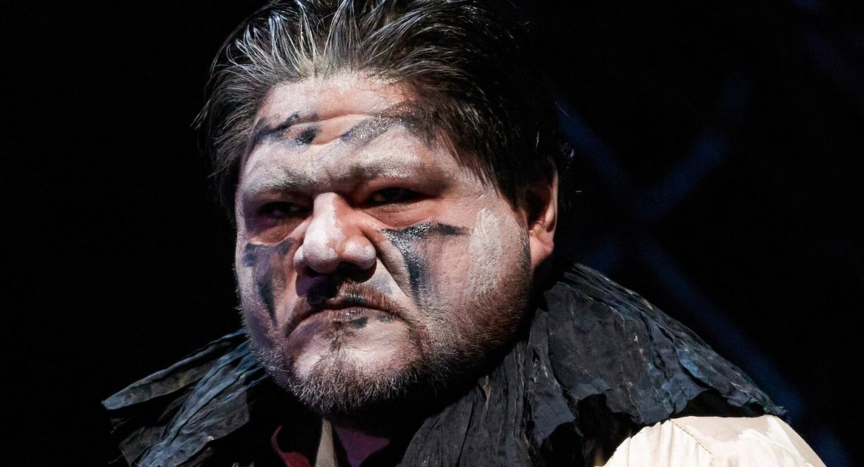Opera review
Love, obsession, death and a lot of great music: All those staples of opera are on display in “Pagliacci,” which opened Seattle Opera’s 2024-25 season Saturday and runs through Aug. 17.
“Pagliacci” (“clowns” in Italian) is so often presented with another short opera in the same tradition, Pietro Mascagni’s “Cavalleria Rusticana,” that the double bill is commonly dubbed “Cav/Pag.” (The Metropolitan Opera first presented the two together back in 1893, and the tradition has continued ever since.) Seattle Opera’s current production, however, is proof that “Pagliacci” has plenty of punch on its own. This show has such a high level of emotional energy, and such musical impact, that it needs no companion piece. The running time is about 95 minutes plus an intermission: short for an opera evening, but there certainly isn’t a dull moment.
The production owes its success to many factors, but among the most important are the eloquent conducting of Carlo Montanaro and the imaginative stage direction of Dan Wallace Miller. Montanaro’s pacing gave the singers space where they needed it, but never allowed the energy to flag. Miller somehow wrangled the cast into a complicated set with a huge staircase and not much room to maneuver (designed by Steven C. Kemp), but it all worked splendidly.
Set in 1940s Italy, this production of “Pagliacci” tells the story of a traveling theater troupe that acts out a real-life drama — one that concludes in tragedy. The troupe includes the clowns Canio (Diego Torre), Tonio (Michael Chioldi) and Beppe (John Marzano); Canio’s wife, Nedda (Monica Conesa), and Nedda’s secret lover, a villager named Silvio (Michael J. Hawk). Canio is the troupe’s leader; he’s a jealous husband, and he suspects that Nedda is unfaithful. His suspicions lead him to erupt into violence during the troupe’s performance of a comedy — a comedy about infidelity that hits much too close to home.
Torre’s performance as Canio was remarkable for its depth and nuance, as well as its heft and power throughout an imposing upper register. His showstopping aria, “Vesti la giubba,” is one of the all-time great moments for tenor, and Torre took full advantage of its expressive opportunities. Every syllable was perfectly placed; this is a singer at the top of his game, who knows the score (both literally and figuratively).
As the free-spirited Nedda (who is also desired by two other men), Conesa, a Cuban American soprano who makes her U.S. debut in this production, created a vivid impression that made understandable the obsession of all these fellows. Her voice had remarkable presence, with a bright timbre and an easy facility throughout its register. This was her first performance as Nedda, but Conesa already sounded completely at home in the role.
The Seattle Opera chorus, prepared by chorusmaster Michaella Calzaretta, sang exuberantly and expertly.
This “Pagliacci” is another gem in a long string of successes from Seattle Opera General Director Christina Scheppelmann, whose preperformance remarks reminded listeners of her impending departure. At the end of the year, she will move to Brussels to become general and artistic director of La Monnaie/De Munt (the national opera of Belgium). She will be greatly missed.

